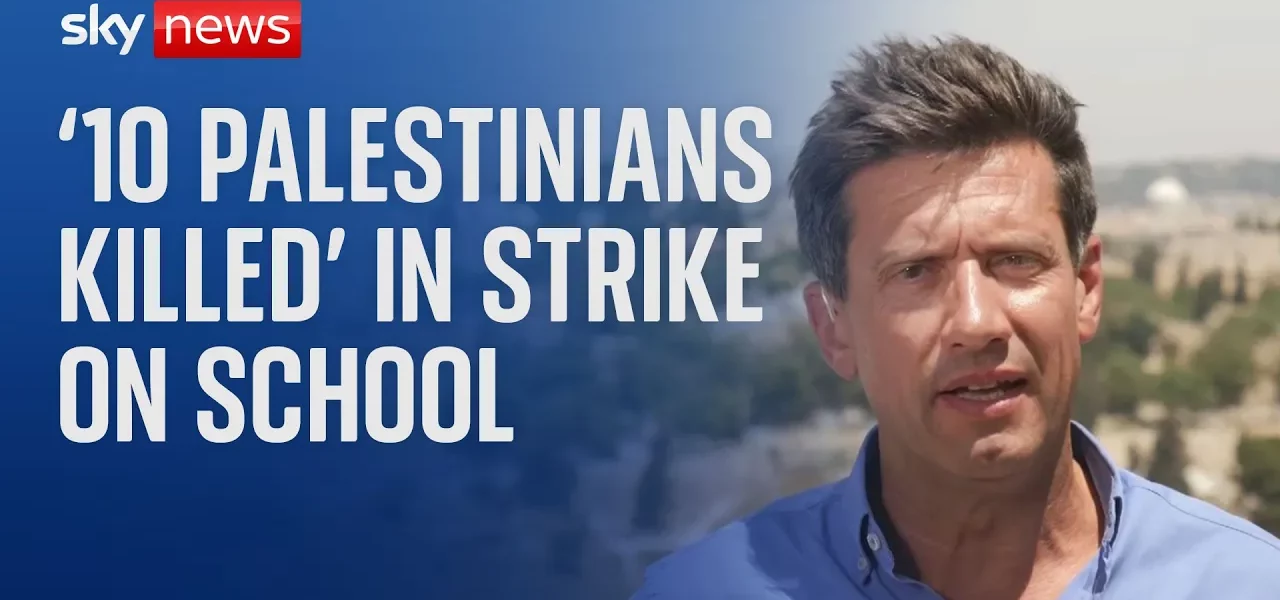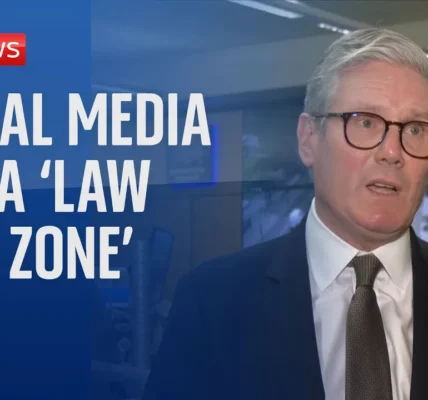Breaking News: Airstrike on Gaza School Claims Lives Amid Ceasefire Talks

This article delves into the recent tragic airstrike on a school in Gaza City, the implications for ongoing diplomatic discussions, and the broader context of the Israel-Hamas conflict.
Introduction
In a devastating turn of events, Gaza’s Civil Defense Force has reported that ten Palestinians have lost their lives due to an airstrike on a school compound in Gaza City. This grim incident highlights the ongoing violence in the region and raises significant concerns about the humanitarian situation. As diplomatic efforts continue, particularly involving U.S. Secretary of State Anthony Blinken, the complexities of the conflict and the skepticism surrounding ceasefire negotiations become increasingly apparent.
The Airstrike Incident
The recent airstrike that targeted a school in Gaza City has resulted in the tragic loss of innocent lives, a situation that underscores the urgent need for peace. The Israeli Defense Forces (IDF) confirmed the attack, stating that their objective was to target Hamas operatives believed to be using the school compound for military purposes. However, Hamas has vehemently denied these allegations, maintaining that they do not utilize schools or hospitals for military activities.
Current Diplomatic Efforts
As the violence escalates, U.S. Secretary of State Anthony Blinken is engaging in critical discussions with Egyptian President Abdel Fattah el-Sisi, aiming to broker a ceasefire agreement. This proposal, backed by the United States, is intended to address the ongoing hostilities, yet the response from Hamas leadership has been tepid.
Challenges to Ceasefire Talks
- Hamas leadership’s skepticism regarding the viability of the proposed agreement.
- Israeli Prime Minister Benjamin Netanyahu’s reluctance to make significant concessions.
- Potential backlash from hardliners within Netanyahu’s coalition government.
Despite these challenges, U.S. officials remain optimistic about the potential for a ceasefire, understanding that the failure of these talks could lead to a larger regional conflict.
Views from Israeli Commentators
Insights from senior Israeli commentators reveal a rather pessimistic outlook regarding the potential for a successful ceasefire. Many suggest that neither Netanyahu nor Hamas leader Yahya Sinwar is genuinely committed to a resolution. Recent intelligence assessments indicate that Hamas may be planning to escalate its military actions, including potential attacks beyond Gaza.
Military Strategies and Concerns
- The possibility of Hamas expanding its conflict beyond Gaza.
- Netanyahu’s strategy to maintain a military presence in the Philadelphia Corridor, a critical border area between Gaza and Egypt.
- The implications of internal Israeli politics on the peace process.
Such dynamics complicate the path to peace and suggest that the current military engagements may only intensify in the absence of a comprehensive agreement.
Regional Implications
The geopolitical landscape in the region is precarious, with the potential for retaliation from groups like Hezbollah and Iran following recent assassinations of key figures. The volatility of the situation necessitates careful diplomatic navigation to prevent further escalation of hostilities that could engulf neighboring areas.
Potential Consequences of Failed Diplomacy
- Increased military actions from Hamas and potential spillover into the West Bank.
- Heightened tensions between Israel and its neighbors, particularly Egypt.
- Broader implications for U.S. foreign policy in the Middle East.
Conclusion
The airstrike on the Gaza school is a tragic reminder of the conflict’s human cost and the urgent need for a sustainable ceasefire. As diplomatic efforts continue, the situation remains volatile, with significant implications for both regional stability and humanitarian conditions. Stakeholders must prioritize dialogue and negotiations to prevent further loss of life. For more updates on the Israel-Hamas conflict and related news, stay tuned to our website.
“`




